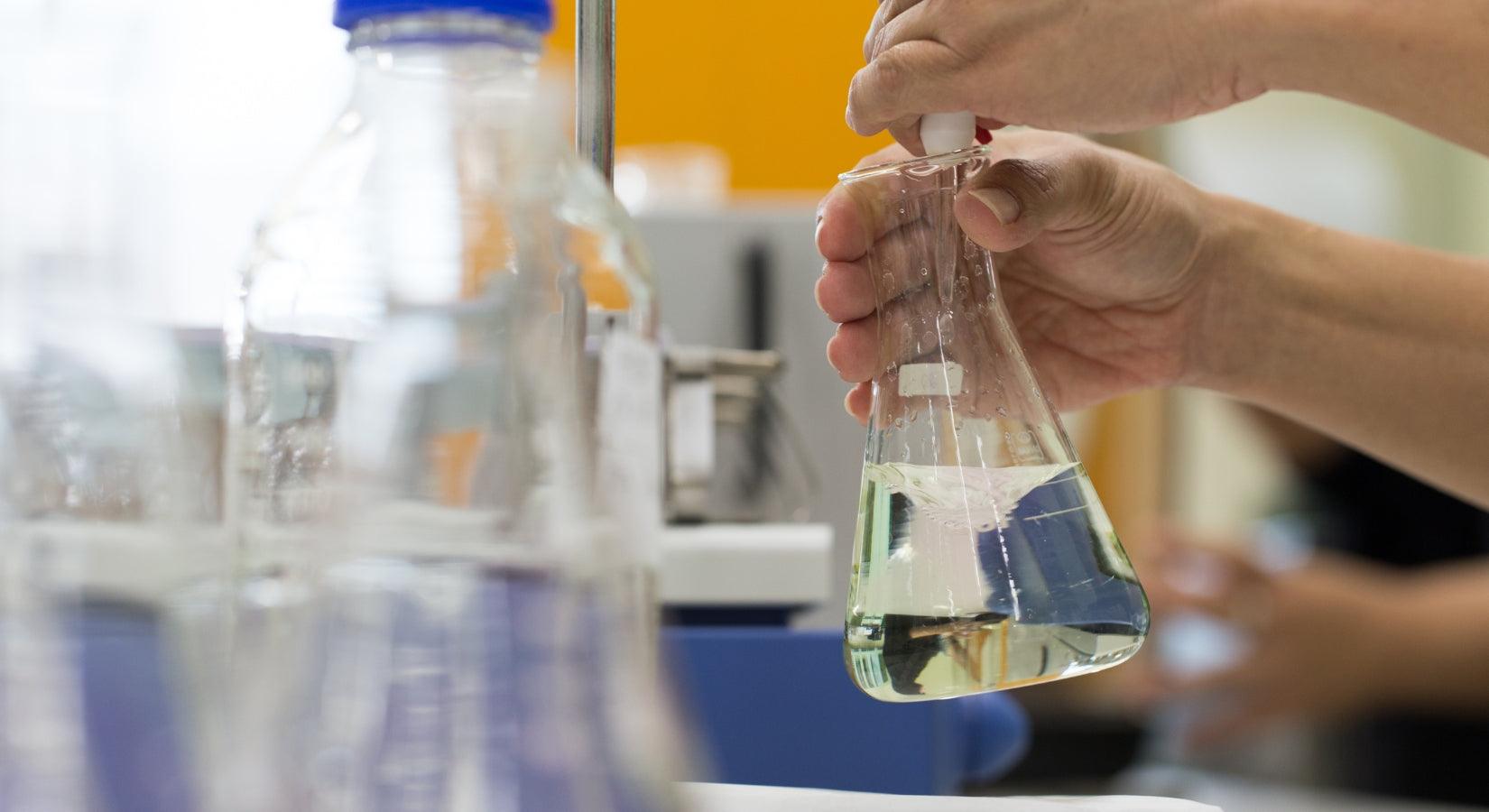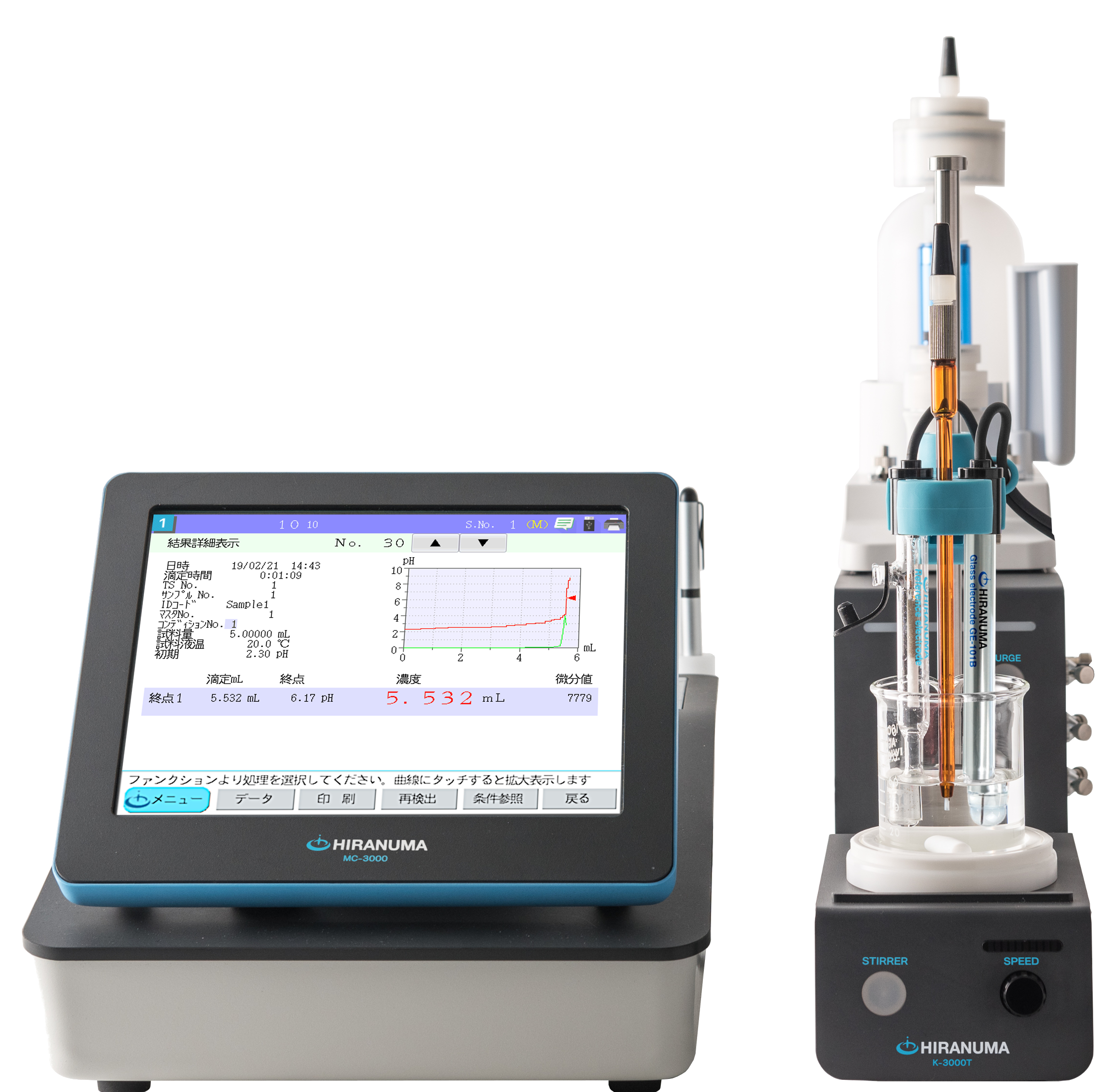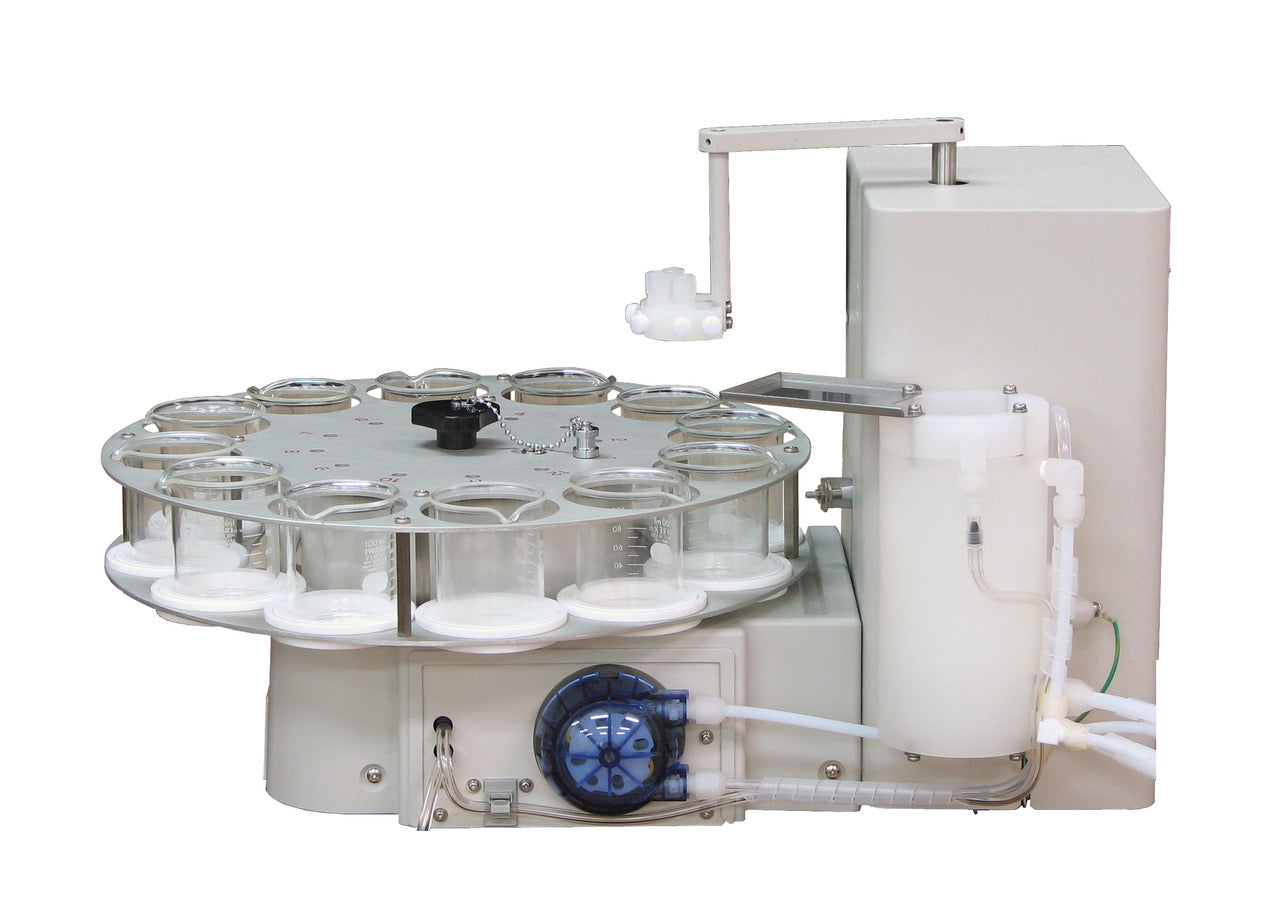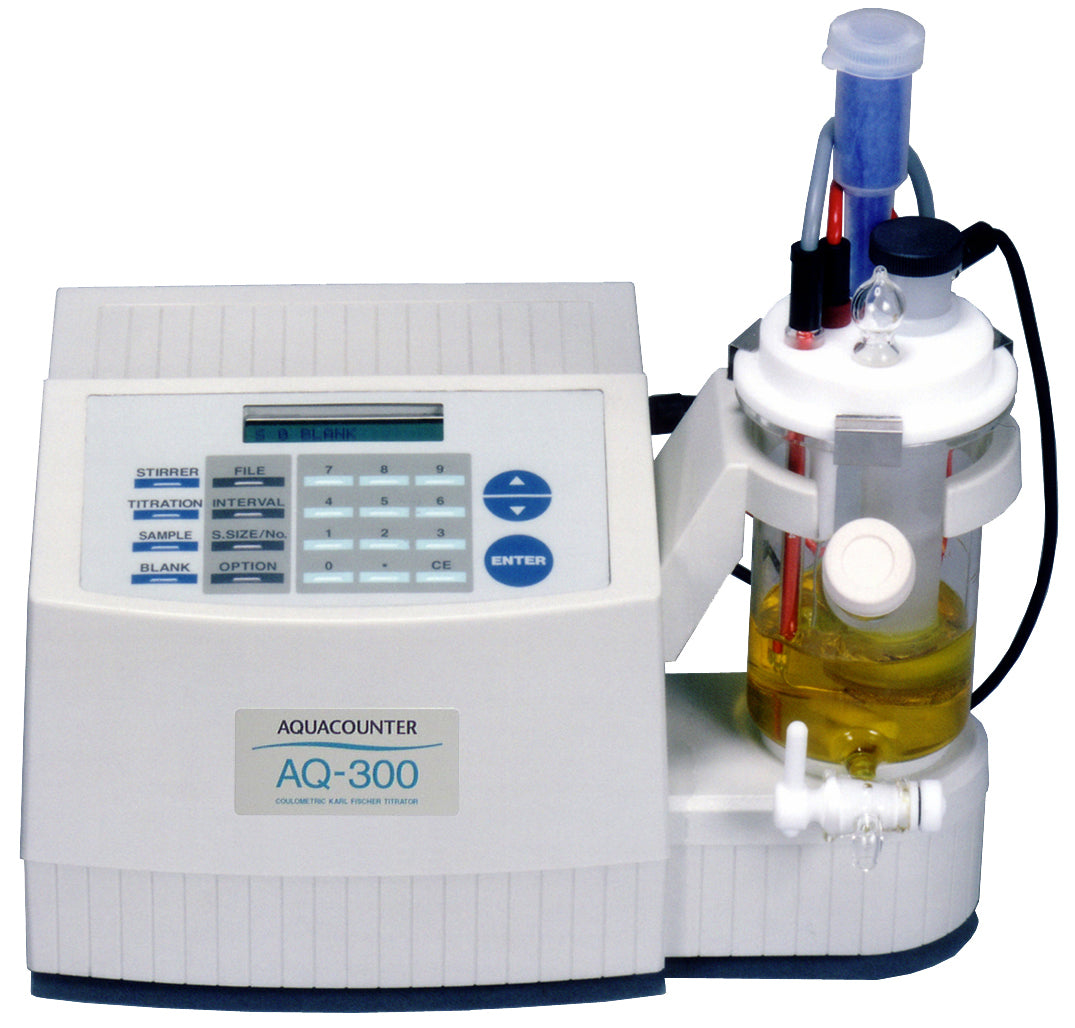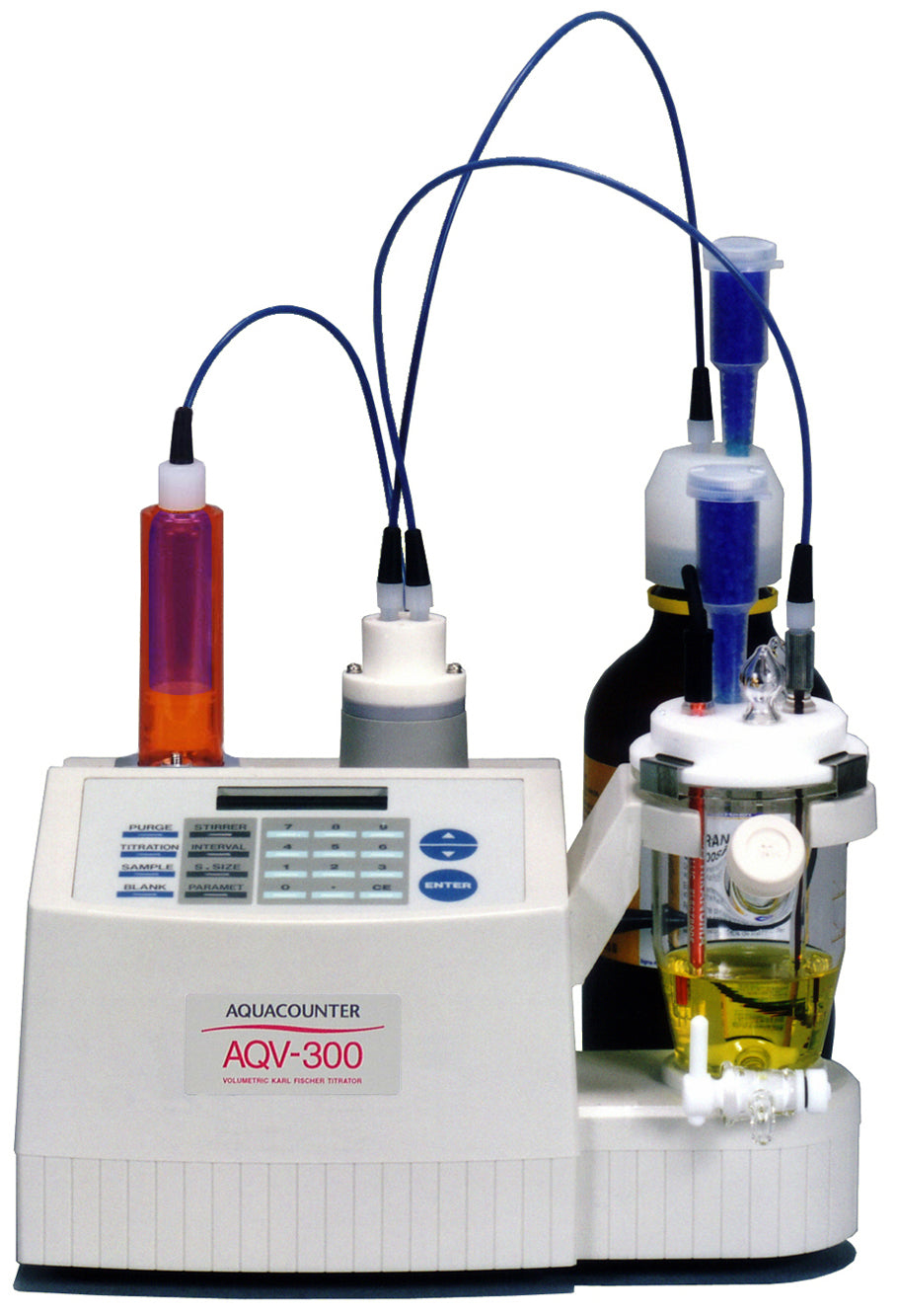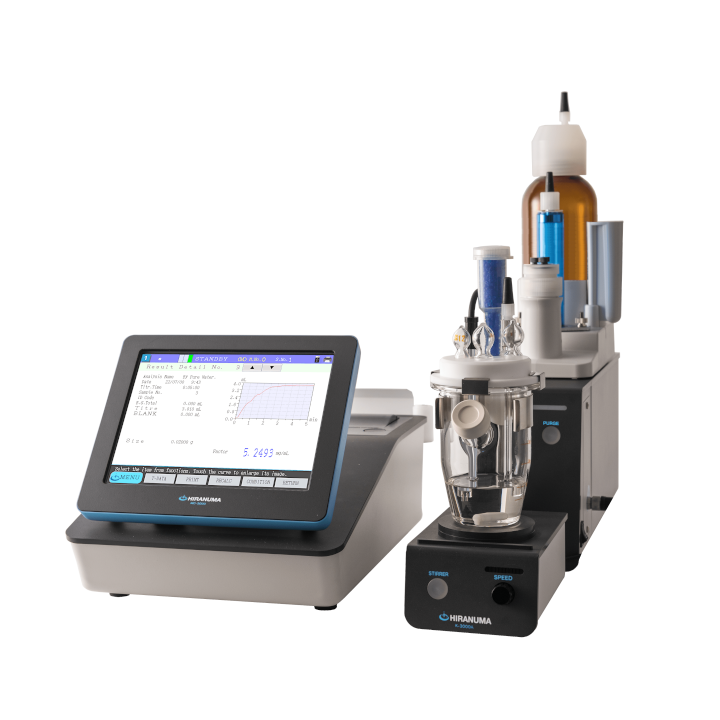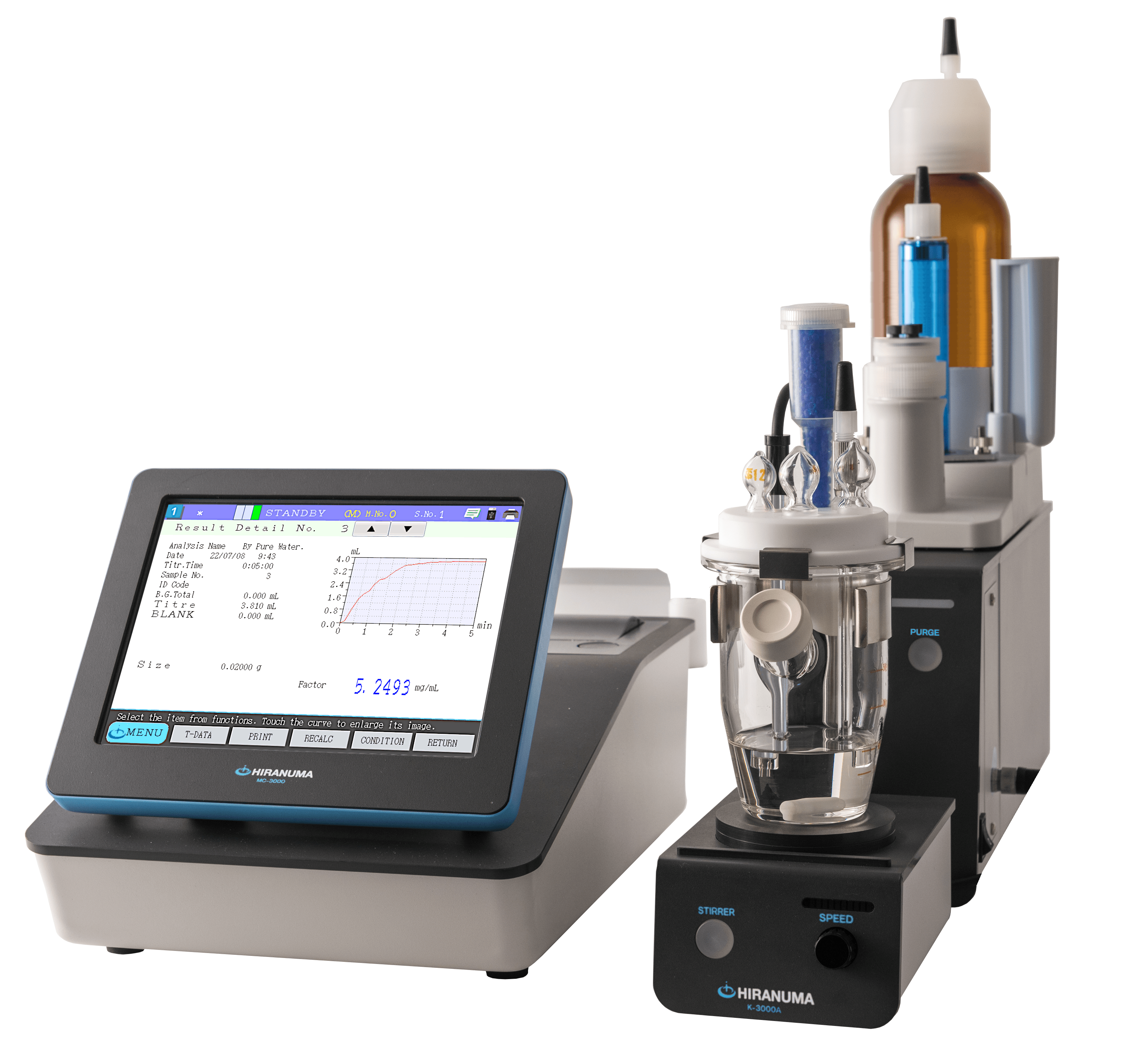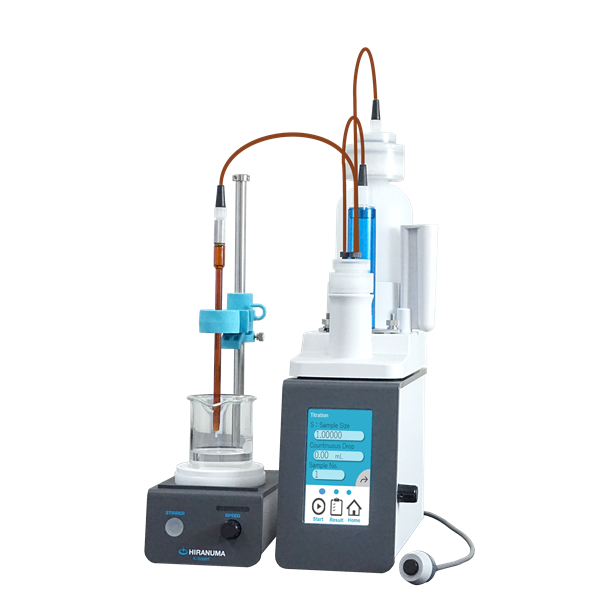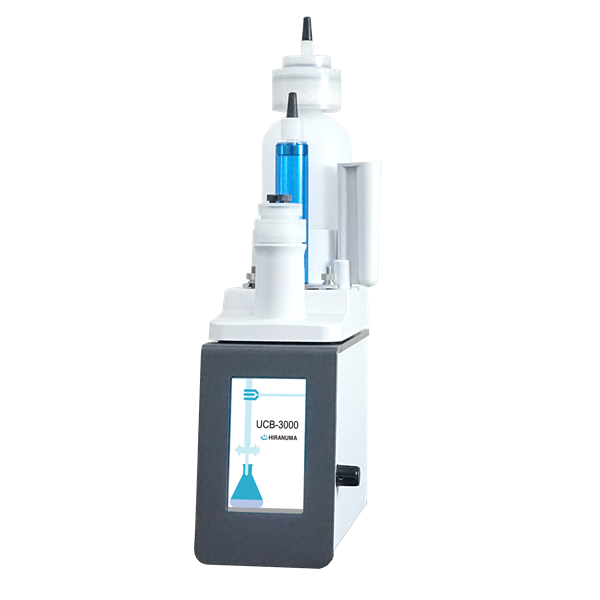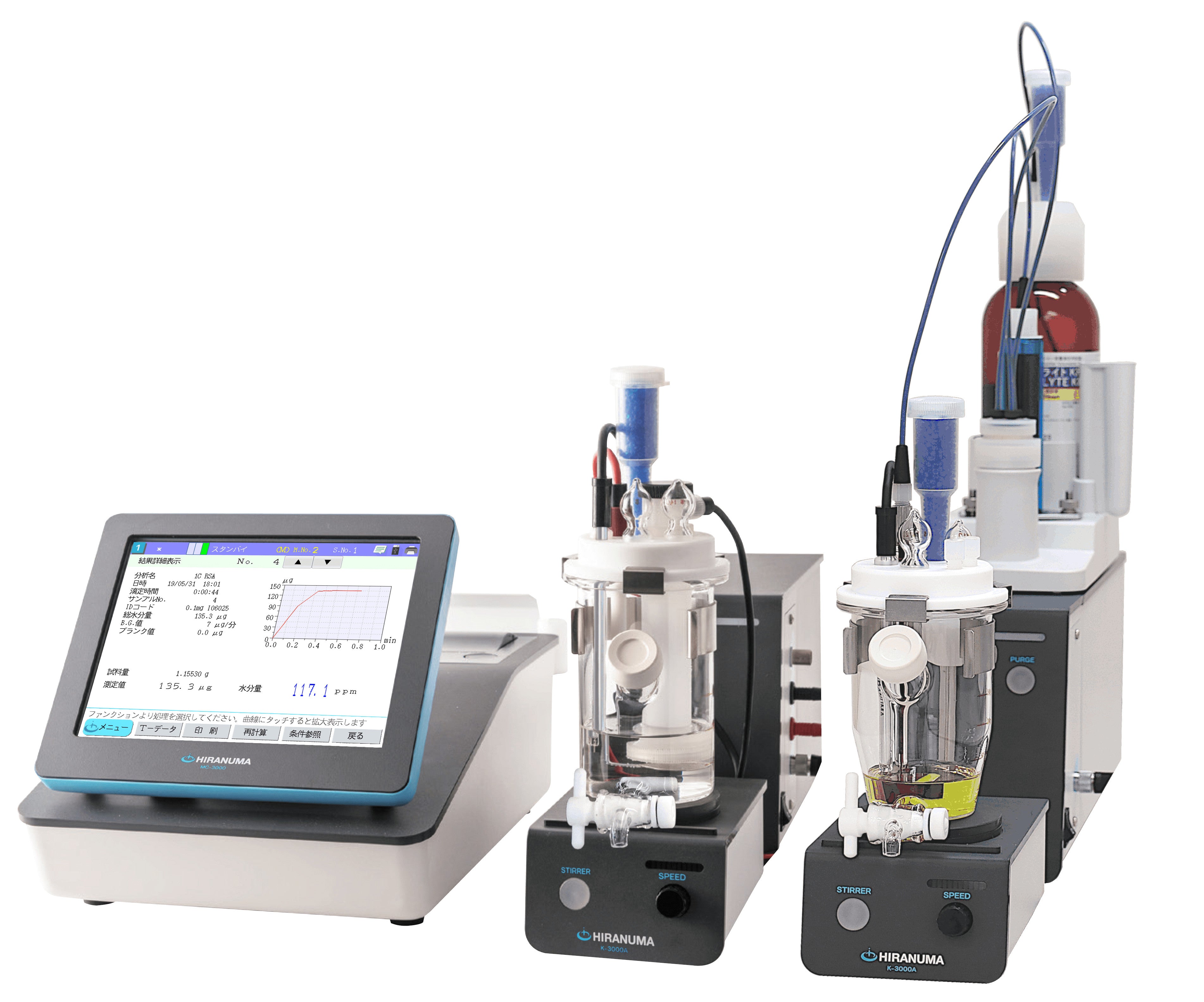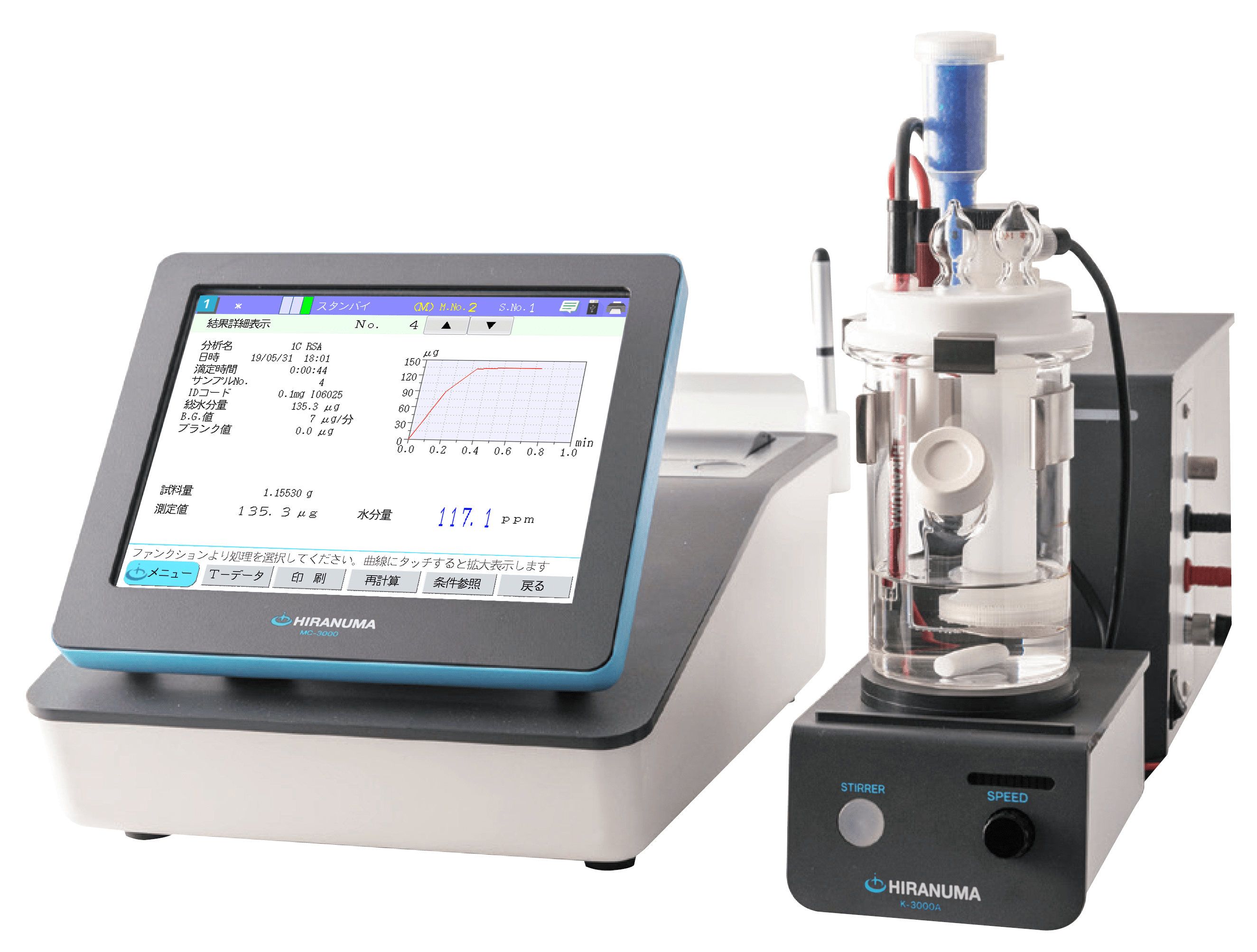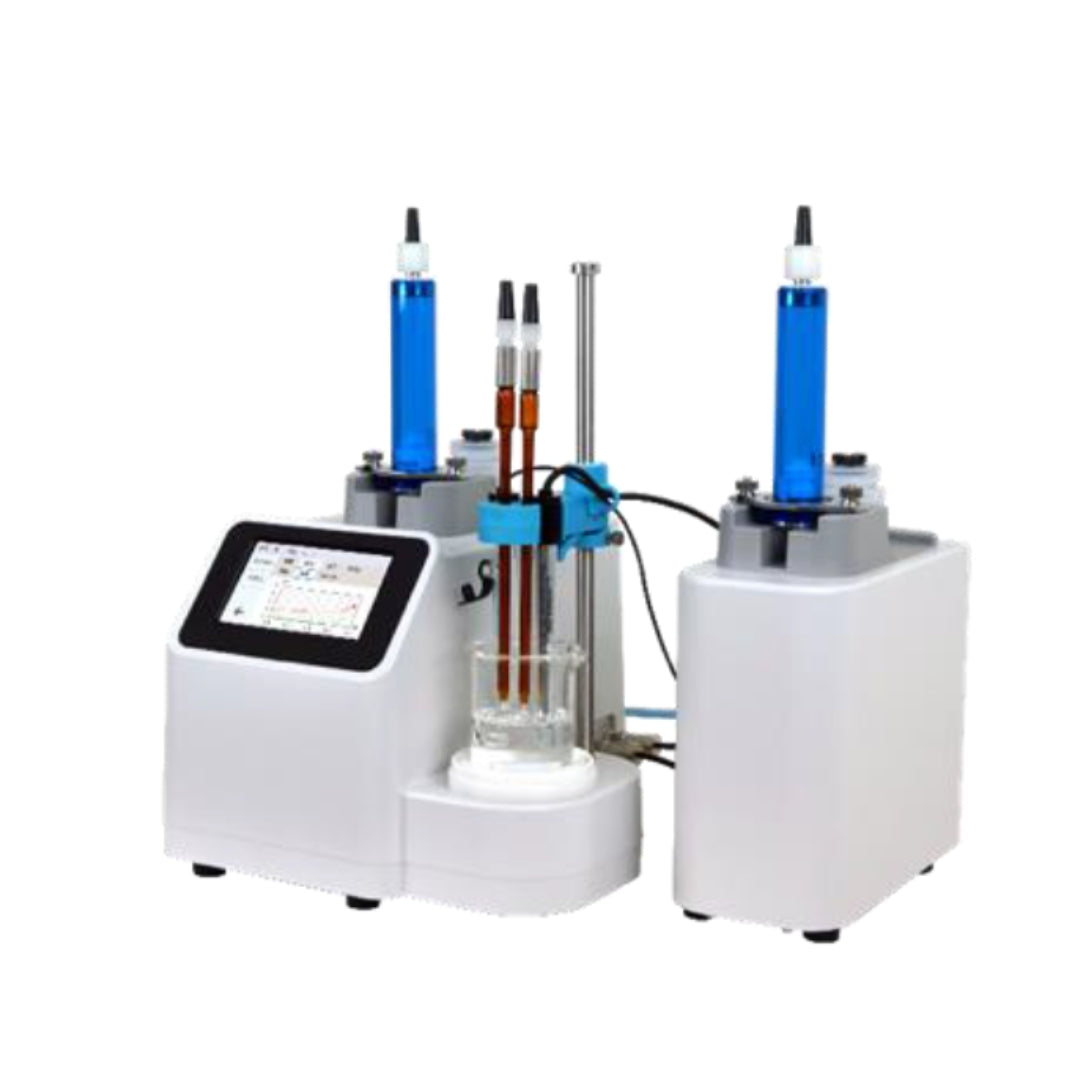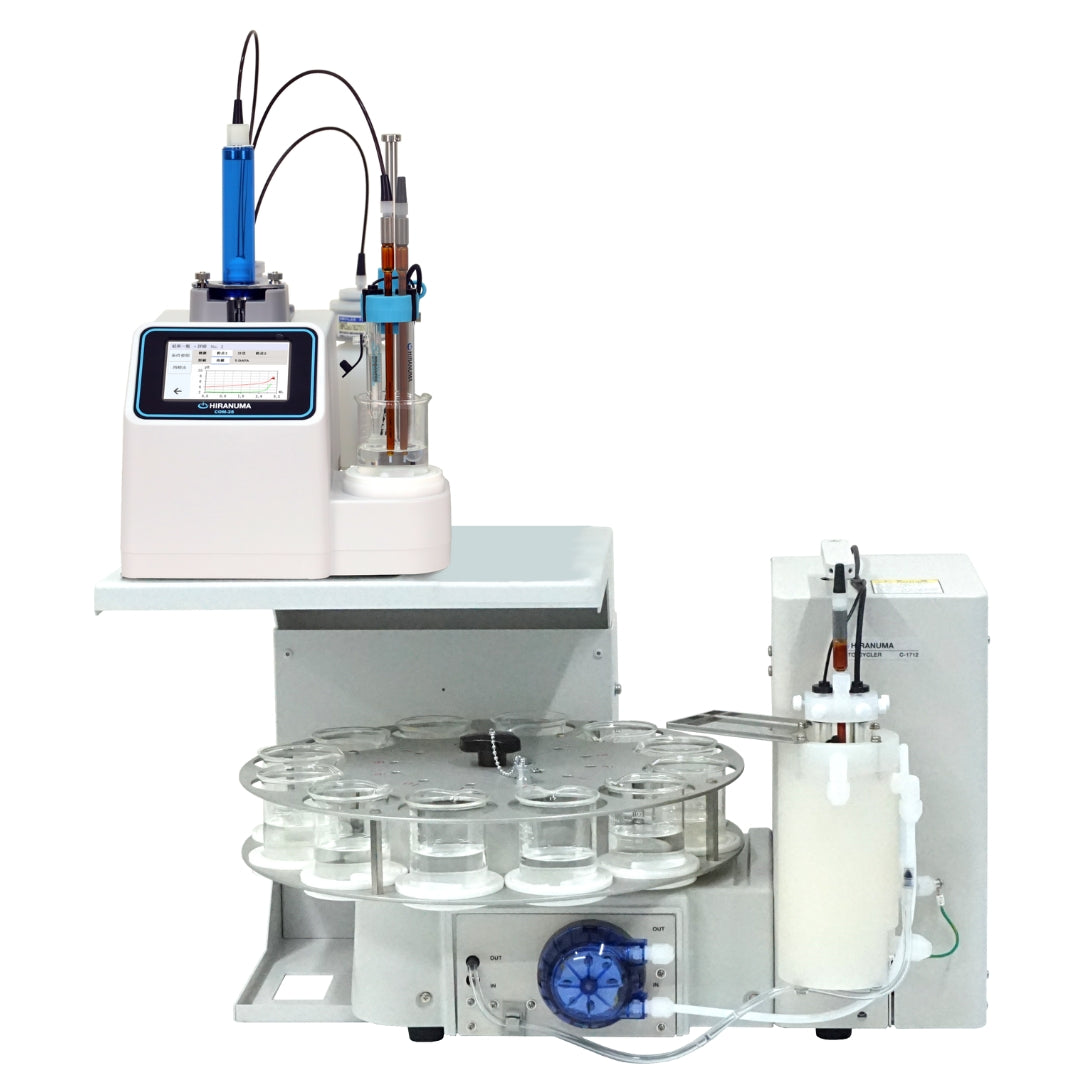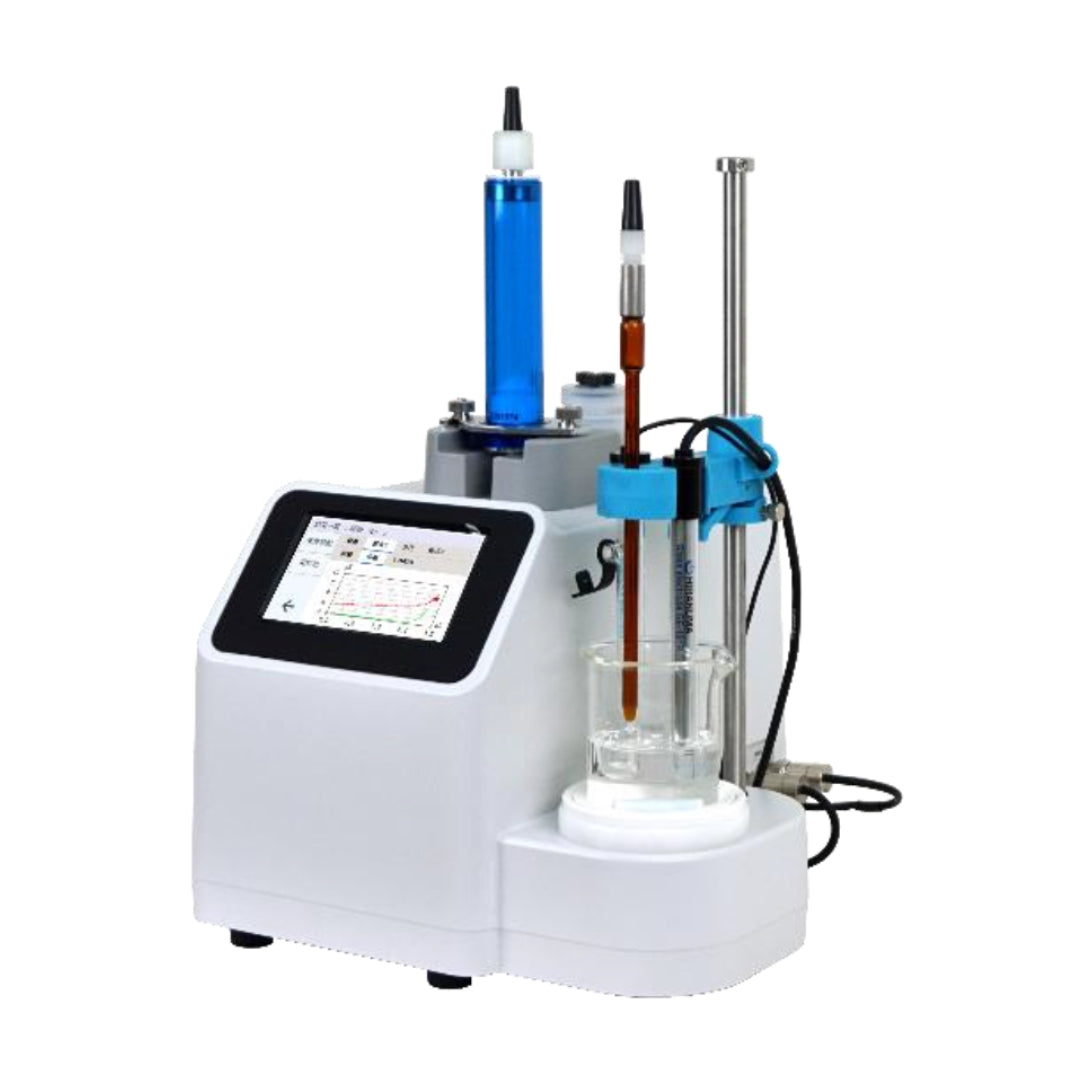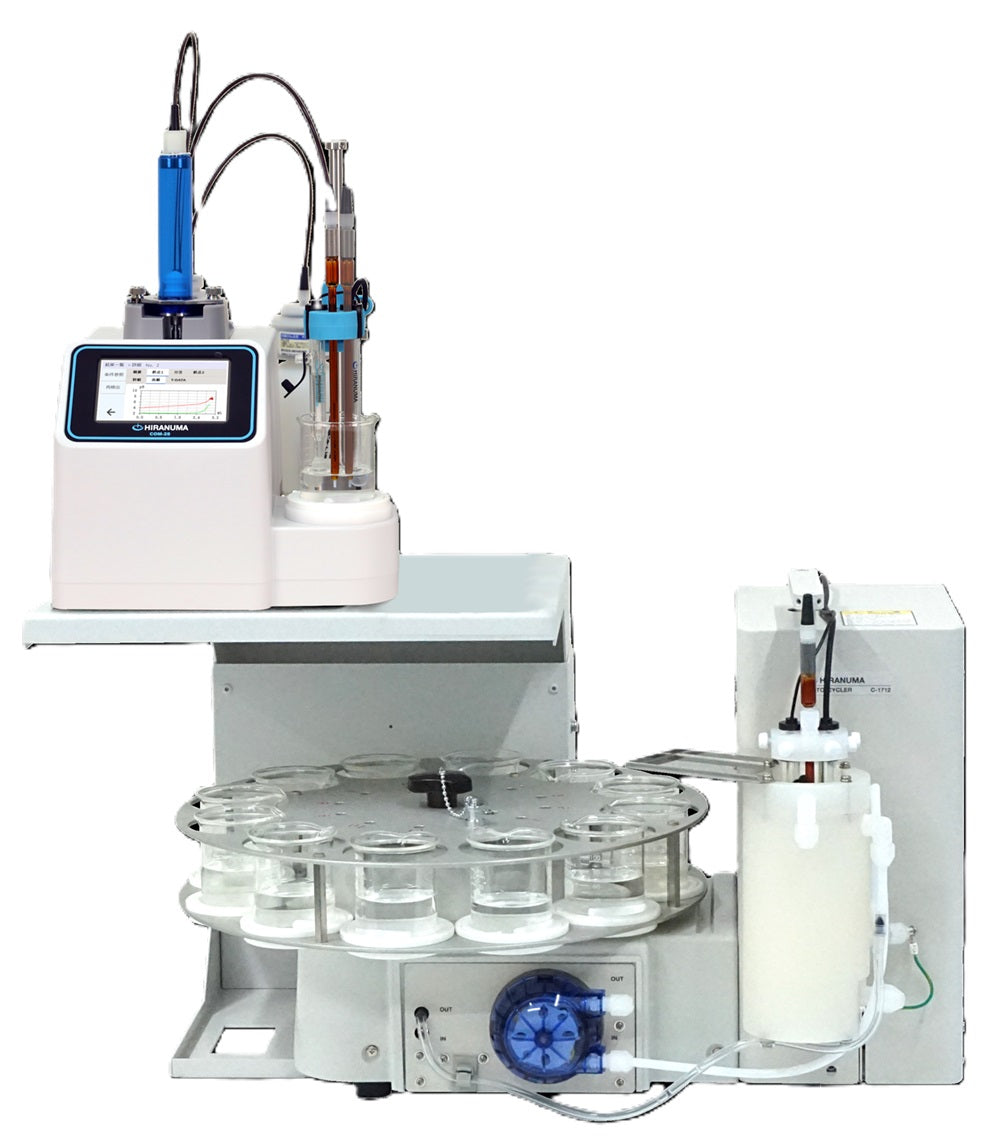| HIRANUMA APPLICATION DATA | Automatic Titrator | Data No. | F10 | Apr. 5,2019 |
| Electric & Electronics | Determination of alkaline component in photoresist remover solution (Determination of carbonates with barium chloride addition method) |
1. Abstract
Strong alkaline solution is used as remover for residual photoresist on the substrate after the development of the substrate for liquid crystal display instrument etc. The composition depends on the intended use but sodium hydroxide, potassium hydroxide, and tetramethylammonium hydroxide (TMAH) are used as remover.
TMAH can be determined by potentiometric titration with hydrochloric acid standard solution. TMAH could absorb carbon dioxide gas and generate carbonates, it indicates another inflection point at pH around 4 on the titration with hydrochloric acid standard solution. This report introduces an example of fractional determination for TMAH and carbonates. Barium chloride is added to determine carbonates; the precipitate of barium carbonate is generated on this method (formula (1)).
| [N(CH₃)₄]₂CO₃ + BaCl₂ → [N(CH₃)₄Cl]₂ + BaCO₃↓ | ・・・(1) |
This solution is titrated with hydrochloric acid. Only TMAH is determined at the first inflection point, and barium carbonate is determined at the second inflection point on the titration.
| N(CH₃)₄OH + HCl → N(CH₃)₄Cl + H₂O | ・・・(2) |
| BaCO₃ + 2HCl → BaCl₂ + CO₂ + H₂O | ・・・(3) |
The reactions between TMAH and hydrochloric acid is described in formula (2), barium carbonate and hydrochloric acid is shown in formula (3). It reaches the endpoint at pH around 9 and 4 on the reaction (2) and (3), respectively. The titrant volume to determine carbonates gets twice on this method compared with the method without the addition of barium chloride. This method is useful especially for a sample containing less amount of carbonate.
2. Configuration of instruments and Reagents
| (1) | Configuration of instruments | ||
| Main unit | : | Hiranuma Automatic Titrator COM series | |
| Electrodes | : | Glass electrode GE-101B Reference electrode RE-201Z *The following electrodes are usable instead of the above electrodes. ・Glass reference combination electrode GR-501BZ…Fixed sleeve type ・Glass reference combination electrode GR-511BZ…Moveable sleeve type |
|
| (2) | Reagents | ||
| Titrant | : | 0.5 mol/L Hydrochloric acid standard solution | |
| Additive solution | : | 10 % Barium chloride solution Dissolve 11.7 g of barium chloride dihydrate in DI water and dilute to 100 mL |
|
3. Measurement procedure
| (1) | Take about 25 g of sample into a 50 mL beaker and weigh accurately. |
| (2) | Add 10 mL of 10 % barium chloride solution. |
| (3) | Immerse electrodes and start titration with 0.5 mol/L hydrochloric acid standard solution. |
4. Measurement conditions and results
Examples of titration conditions
(1) Titration of TMAH

(2) Titration of carbonates

Measurement results
Measurement results of TMAH
| Number of measurement |
Size (g) |
Titrant Volume(mL) |
Concentration (%) |
|---|---|---|---|
| 1 | 25.1046 | 12.514 | 2.2832 |
| 2 | 25.1382 | 12.513 | 2.2799 |
| 3 | 25.1796 | 12.534 | 2.2800 |
| Statistic calculation |
Avg. | 2.281 % | |
| SD | 0.0019 % | ||
| RSD | 0.08 % | ||
Example of titration curve

Measurement results of carbonates
| Number of measurement |
Size (g) |
Titrant volume (mL) |
Concentration (%) |
|---|---|---|---|
| 1 | 25.1046 | 0.605 | 0.1261 |
| 2 | 25.1382 | 0.621 | 0.1293 |
| 3 | 25.1796 | 0.624 | 0.1297 |
| Statistic calculation |
Average | 0.128 % | |
| Standard deviation | 0.0020 % | ||
| Coefficient of variation | 1.54 % | ||
Example of titration curve

5. Note
(1) Measurement method
TMAH is strong alkaline reagent which absorbs carbon dioxide gas in air and generates carbonates. Purging air on sample solution with nitrogen gas can reduce the influence of carbon dioxide on the titration. Using air passed through soda lime absorption column instead of nitrogen gas also has a positive effect. Water wasn’t added to sample; non-diluted sample was titrated directly in this measurement. Please pay attention to carbonic acid in the water when it is added for the sample dilution before the titration.
(2) Sample measurement without addition of barium chloride
Barium chloride was added to the sample solution to determine the carbonates. The measurement is possible without barium chloride when the sample contains a certain amount of carbonate. (Please refer to application note F9 regarding the method without the addition of barium chloride.)
Keywords: Tetramethylammonium hydroxide, TMAH, Remover, Carbonates, Neutralization titration, Barium chloride, Barium carbonate
*Some measurement would not be possible depending on optional configuration of system.

